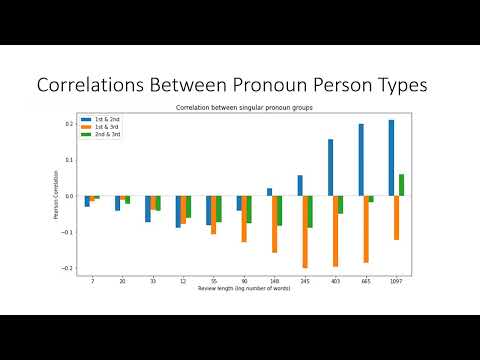 Speaker: Dr. Olivia Fialho
Speaker: Dr. Olivia Fialho
 Affiliation: Huygens Institute (Amsterdam) and Utrecht University
Affiliation: Huygens Institute (Amsterdam) and Utrecht University
Title: Impact and Fiction: The project, a reading typology and the merging of reader and text.
Abstract (long version below): We present the first results of the Impact and Fiction project. The project will analyze the impact of fiction based on > 500.000 online reviews and the full text of a large sample of recent Dutch fiction. We present a conceptual model that merges work from the research traditions of empirical studies of literature and computational literary studies. We discuss the interdisciplinarity inherent in a project of this kind. We also present a data-driven typology of reading experiences as expressed in online reviews.

 Long abstract
Long abstract
The Impact and Fiction project is a three-year project funded by the Netherlands eScience Center. The project investigates books’ impact on readers on the basis of online reader reviews. In this paper we will (1) briefly describe the project, (2) discuss the benefits and challenges of interdisciplinarity in the project and (3) present initial results.
The Project
Ordinary readers’ book comments on social reading sites are an important new source of information for studies into the impact of reading (Rebora et al 2021). While computational analysis of reading effects up to now has mostly looked at overall measures such as sales numbers or number of downloads (Ashok et al 2013, Van Cranenburgh and Bod 2017), we propose to measure various aspects of reading experiences (affective, narrative, stylistic, reflective) in online reviews from sites such as Goodreads and Amazon (Boot and Koolen 2020). Aggregating this impact over books or over readers allows us to be much more specific and to establish impact profiles per book or per reader.
Another limitation of most computational analyses of reading effects has been that much of this work analyzed books in terms of word or part of speech frequencies or other features that are hard to interpret from the perspective of literary studies. Our two aims are (1) to articulate, on the basis of the books’ full text, computable variables that are meaningful from a literary perspective, in relation to aspects of literariness, fictionality and narrativity (Koopman and Hakemulder 2015), and (2) to predict the impact experienced by different types of readers based on these variables. In the Impact and Fiction project, we will apply this approach to a large collection of recent Dutch fiction titles, for which we have at our disposal both the full text (through an agreement with the National Library) and a large (and growing) number of online reviews.
Interdisciplinarity
The projects’ researchers are based at the Literary Studies and Digital Humanities groups at KNAW (Royal Netherlands Academy of Arts and Sciences) and their academic background is in Dutch Language and Culture, Empirical Literary Studies, Artificial Intelligence, and Computer Science. This creates many opportunities for learning from other disciplines.
One of the challenges of the project is to identify and overcome differences in how our disciplines define and interpret concepts and methods. We quickly realized that we needed a thorough discussion of questions such as: What are the different aspects of impact? How to design a conceptual model that grounds the project into a theory of literary reading? How to develop a coding scheme for reviews? How to articulate various types of readers? In this presentation we will discuss how our different backgrounds have been allowing us to contribute nuance and depth to our analyses of reading impact.
Initial Results
Boot and Koolen (2020) use a simple typology of reading impact. To adequately describe readers’ responses as expressed in reviews, we will extend that typology using earlier work done in phenomenological reading studies (Miall and Kuiken 1995, Fialho 2012, Fialho 2019). However, online reviews also show aspects of reading unaccounted for in that tradition, such as frequent references to the author, to other books or to other reviews (Milota 2014) as well as, as expected, recommendations. We are currently working on a data-driven typology of aspects of reader response in online book reviews. At the conference we will present the conceptual model that frames the project, a model that refers to books, readers, the reviews (which we see as materialized reading experiences) and the analysis tools we employ to predict the reading experience on the basis of the book and reader level properties. We will also present a preliminary typology of reading experiences and a preliminary analysis of how it can be used to group different types of readers.
Literature
Ashok, V. G., Feng, S., & Choi, Y. (2013). Success with style: Using writing style to predict the success of novels. Poetry, 580(9), 70.
Boot, P. & Koolen, M. (2020). Captivating, splendid or instructive? Assessing the impact of reading in online book reviews. Scientific Study of Literature 10:1, pp. 66–93. issn 2210-4372 | e‑issn 2210-4380 DOI: 10.1075/ssol.20003.boo. Pre-pub available at: ssol.20003.boo-proofs-after-correction.pdf
Fialho, Olivia (2012), Self-Modifying Experiences in Literary Reading: A Model for Reader Response. PhD Dissertation, University of Alberta.
Fialho, Olivia. “What Is Literature For? The Role of Transformative Reading.” Cogent Arts & Humanities 6, no. 1 (2019/01/01 2019). https://doi.org/10.1080/23311983.2019.1692532.
Koopman, Eva, & Hakemulder, Frank. (2015). Effects of Literature on Empathy and Self- Reflection: A Theoretical-Empirical Framework. Journal of Literary Theory, 9(1), 79-111.
Miall, David S, and Don Kuiken. “Aspects of Literary Response: A New Questionnaire.” Research in the Teaching of English (1995): 37-58.
Milota, Megan. “From “Compelling and Mystical” to “Makes You Want to Commit Suicide”: Quantifying the Spectrum of Online Reader Responses.” Scientific Study of Literature 4, no. 2 (2014): 178-95.
Rebora, Simone, Peter Boot, Federico Pianzola, Brigitte Gasser, J Berenike Herrmann, Maria Kraxenberger, Moniek M Kuijpers, et al. “Digital Humanities and Digital Social Reading.” Digital Scholarship in the Humanities 36, no. Supplement_2 (2021): ii230-ii50.
Van Cranenburgh, A., & Bod, R. (2017). A data-oriented model of literary language. arXiv preprint arXiv:1701.03329.

